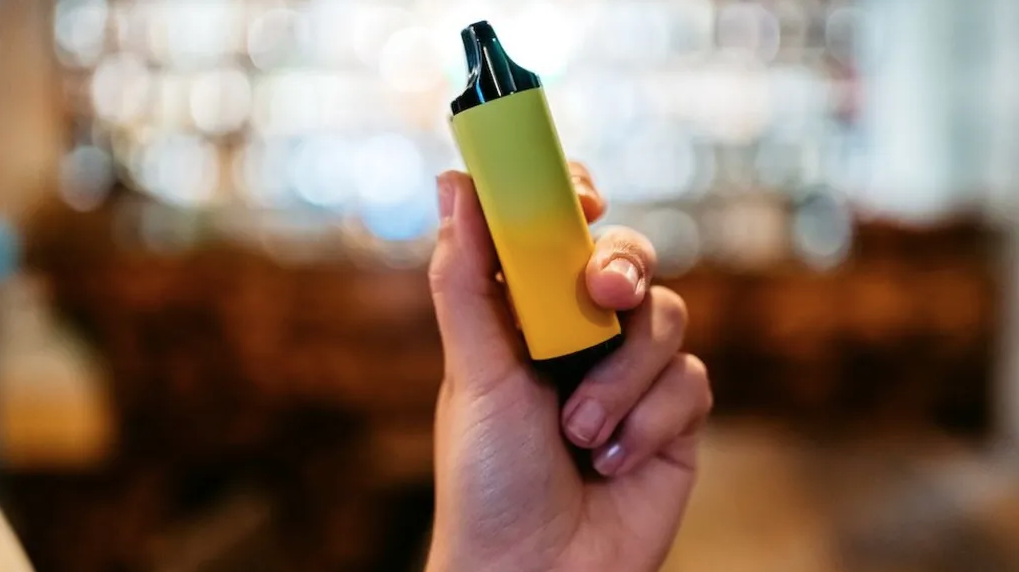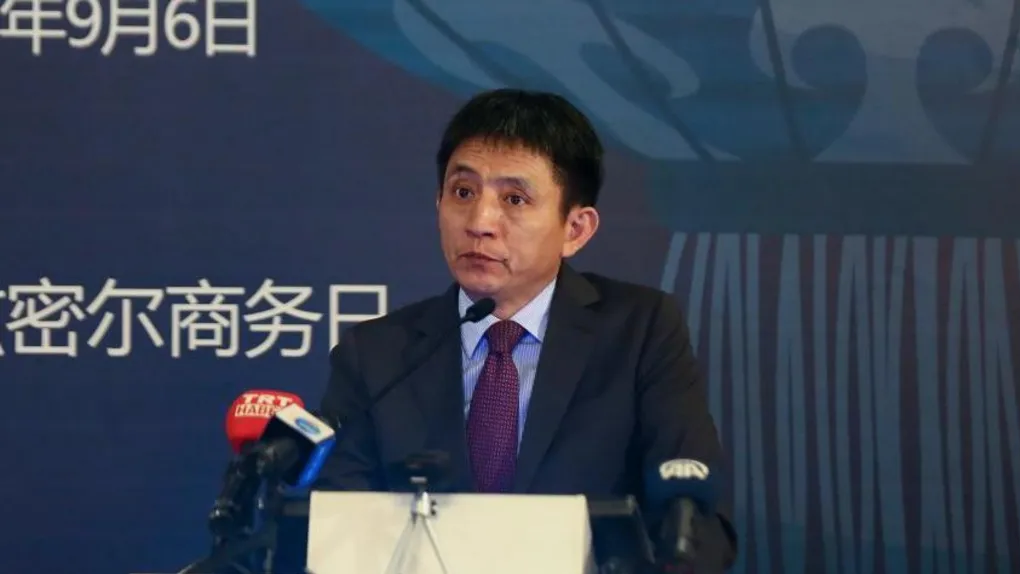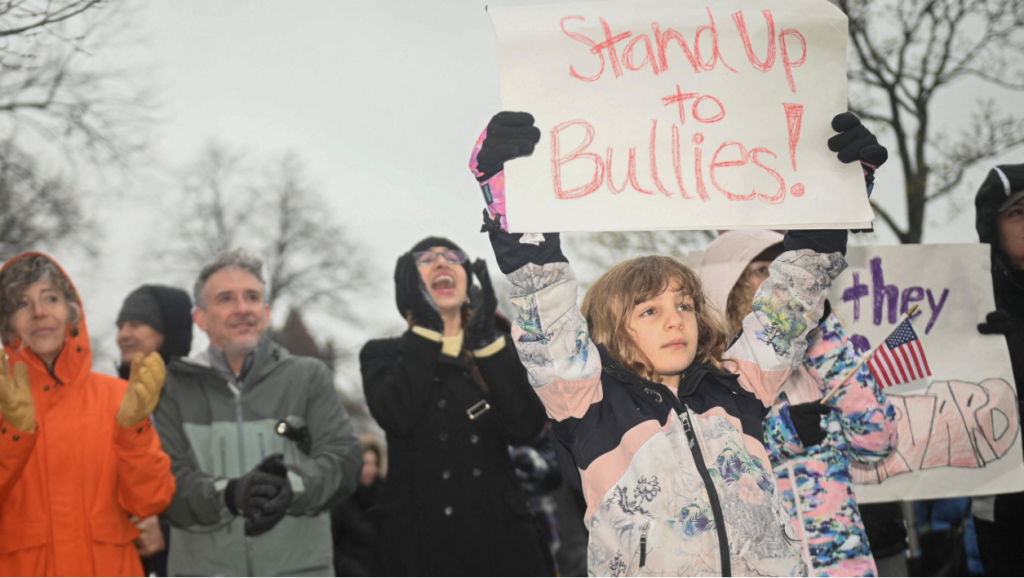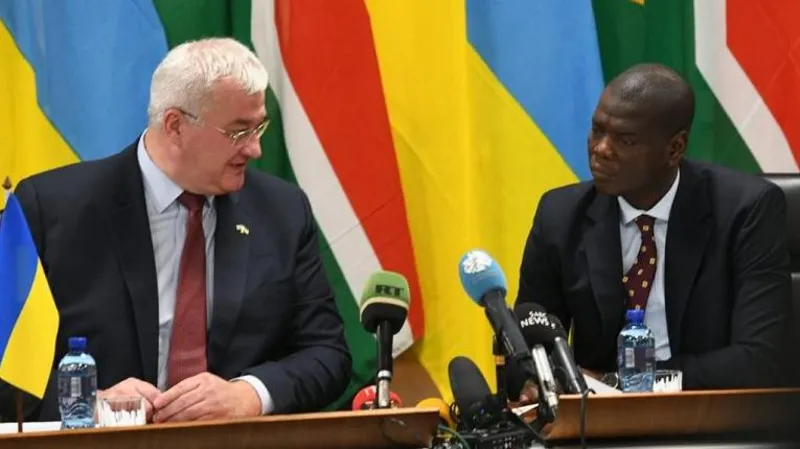Backlash over photos of Somali men at UN women’s conference
Written by BBC on October 28, 2024
Outrage has erupted on social media after Somalia’s Family Minister Gen Bashir Mohamed Jama shared photos on X of himself and another male delegate representing Somalia at a UN meeting about women’s issues.
“It is tone-deaf for the Somali government to have men on the frontline, representing women at the conference,” Fathiya Absie, a well-known Somali author and human rights activist, told the BBC.
A senior civil servant has told the BBC that two women also made up Somalia’s four-member delegation to the Women, Peace and Security Focal Points Network event in New York, but were not included in the photo.
Out of 197 delegates registered for the event from 57 countries, just 21 were men.
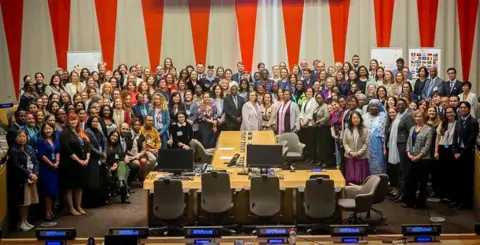
Gen Jama is pictured centre-stage in the group photo
The group photo from the event – held earlier this week – has provoked further ridicule from Somalis online, with many saying the government does not take women’s issues seriously.
- Inside the beauty pageant in one of the world’s worst places to be a woman
- What beauty parlours reveal about Somali women
Several photos were tweeted from the conference, one showing Gen Jama with his adviser, former MP Abdullahi Godah Barre; another showed them in the meeting room with another man, who the BBC was told was an aide.
“He was not the only male minister present – there were a lot of other male ministers, such as Japan and China,” Mohamed Bashir, a senior civil servant at Somalia’s Ministry of Family and Human Development, told the BBC.
The two female Somali delegates were Iman Elman, a prominent military officer, and Sadia Mohammed Nur, a civil servant from the ministry, he said.
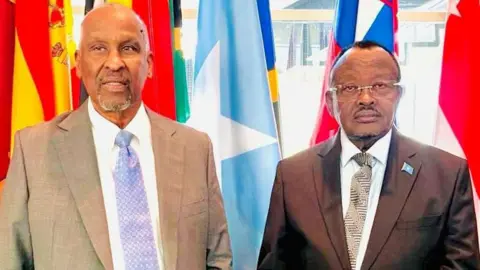
The row over Gen Jama’s photos tweeted from the UN conference has revived criticism about the renaming of Somalia’s ministry of women
This is when Gen Jama, a senior military officer who has held posts including heading the spy agency and prisons service, was appointed to lead the ministry.
“Removing the word ‘women’ from the ministry’s title is an erasure of the struggles and specific needs of women. It generalises their issues under the broader term ‘family,'” Ms Absie said.
Women’s rights in Somalia have been under scrutiny for many years.
Women in Somalia – which has suffered a long civil war and a more recent Islamist insurgency – have long played a vital role in peacebuilding, often stepping into leadership roles and pushing for greater political participation.
Despite this, there are not many women in positions of political influence.
“Women were always the minority in leadership and now they have given the remaining ministries to men,” Ms Absie said.
Some did defend the government, saying they did not see anything wrong with having a man with experience fronting the family ministry.
But the voices of those calling for a stronger female presence are growing louder – and Mr Bashir said the ministry would be striving to give women a more significant role in future.
